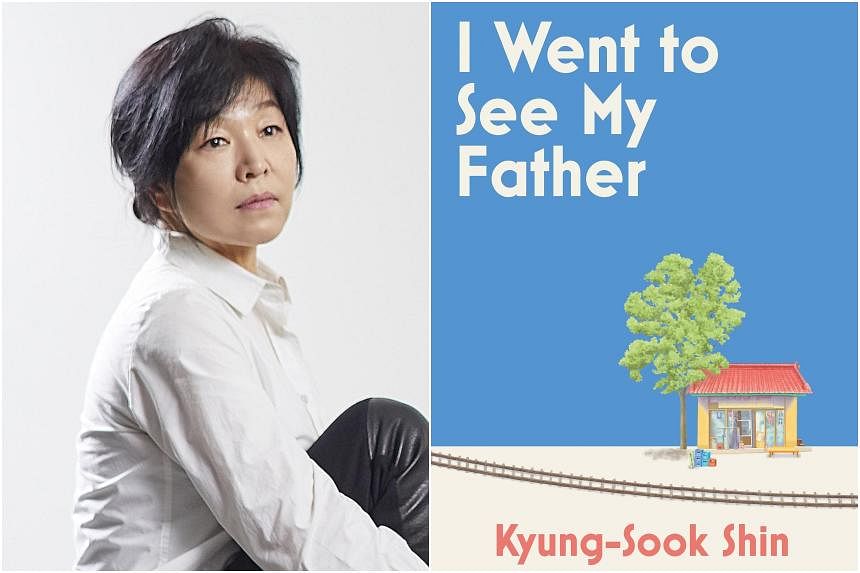I Went To See My Father
By Kyung-Sook Shin, translated by Anton HurFiction/Weidenfeld & Nicolson/Paperback/304 pages/$20.83/Amazon SG (amzn.to/3PreUPF)4 out of 5 stars
When her mother is taken to a hospital in Seoul for medical treatment, writer Hon returns home to care for her lonely father. He had unexpectedly wept at the send-off, shocking Hon out of her own grief.
This is the first time in two years that she is setting foot in her home town J–, a village in South Korea.
Living with her aged father forces Hon to confront whether she truly knew him, as she sifts through belongings, correspondences, and stories from friends and family that paint a different portrait of the man she thought she knew.
I Went To See My Father comes from acclaimed South Korean writer Kyung-sook Shin, the first woman to win the Man Asian Literary Prize in 2011 for Please Look After Mom, translated by Chi-young Kim.
The international sensation about a family forced to reflect on their relationship with their mother as they search for her catapulted Shin to fame.
She is backed up ably here by South Korean translator Anton Hur, who also translated the bestseller I Want To Die But I Want To Eat Tteokbokki (2022) by Baek Se-hee.
In this story, Shin looks once more at an enigmatic parent.
The weeping old man readers encounter at the novel’s beginning is not only the quiet but tender father Hon remembers, but also a steely individual who has weathered the tribulations life has thrown his way.
After his father and older brothers perish in an epidemic, Hon’s father – at 14, still a scrawny adolescent – becomes the head of his family, and learns how to care for his older sister and younger brother.
His life is a window into South Korea’s turbulent history, as he avoids conscription during the Korean War, and later dodges tear gas and bullets in the struggle for democracy in the 1980s and 1990s.
Book review: Christy Lefteri’s The Book Of Fire explores trauma and catharsis
Just as Hon thinks she is beginning to understand her father, he burns the cherished letters exchanged with his eldest son, which he had safeguarded for years, without explanation.
Moments like these remind Hon how incomplete her understanding of her father will always be.
Shin chooses to narrate the father’s memories in an incoherent and haphazard manner, mirroring the way the past comes back in flashes, although this makes for a frustrating reading experience.
The erratic stream of consciousness bogs down the novel with distracting anecdotes that offer little insight into Hon’s father. It feels like wading through mud, though he warns Hon against teleology.
“Living isn’t always about going forward. Sometimes, when looking back is better, you can return to that,” he says.
The non-linear trajectory is broken only in the final chapter, as Hon’s father senses his time is coming and makes preparations, trimming down his earthly possessions and finally sending his daughter away to spare her.
To Hon, he says in the novel’s final lines: “Thanks to all of you, I lived.”
This gratitude feels abrupt, as neither she nor the reader is privy to the man’s tender memories of family.
Nonetheless, this ending frees Hon from the constant guilt haunting her, and poignantly reminds readers that one may never fully understand another person, even a loved one in his or her final moments.
Shin’s latest novel is not an easy read, but it is faithful to reality – a quality valued by fans of this critically acclaimed author.
If you liked this, read: On Earth, We’re Briefly Gorgeous by Ocean Vuong (Vintage, 2019, $17.60, Amazon, go to amzn.to/3L7hojW), where a young Vietnamese-American man’s letters to his illiterate mother serve as a poignant exploration of his attempt to connect with his mother and come to terms with his own life and heritage.
Book review: Chloe Gong’s adult fantasy Immortal Longings does not live up to hype
Book review: C.K. Chau offers a rollicking update of Pride And Prejudice in Good Fortune
This article contains affiliate links. If you buy through these links, we may earn a small commission.
Join ST’s Telegram channel and get the latest breaking news delivered to you.
p.st_telegram_boilerplate:before {
display: inline-block;
content: ” “;
border-radius: 6px;
height: 6px;
width: 6px;
background-color: #12239a;
margin-left: 0px;
margin-right: 13px;
}
a.st_boilerplate {
font-family: “SelaneWebSTForty”, Georgia, “Times New Roman”, Times, serif;
}


